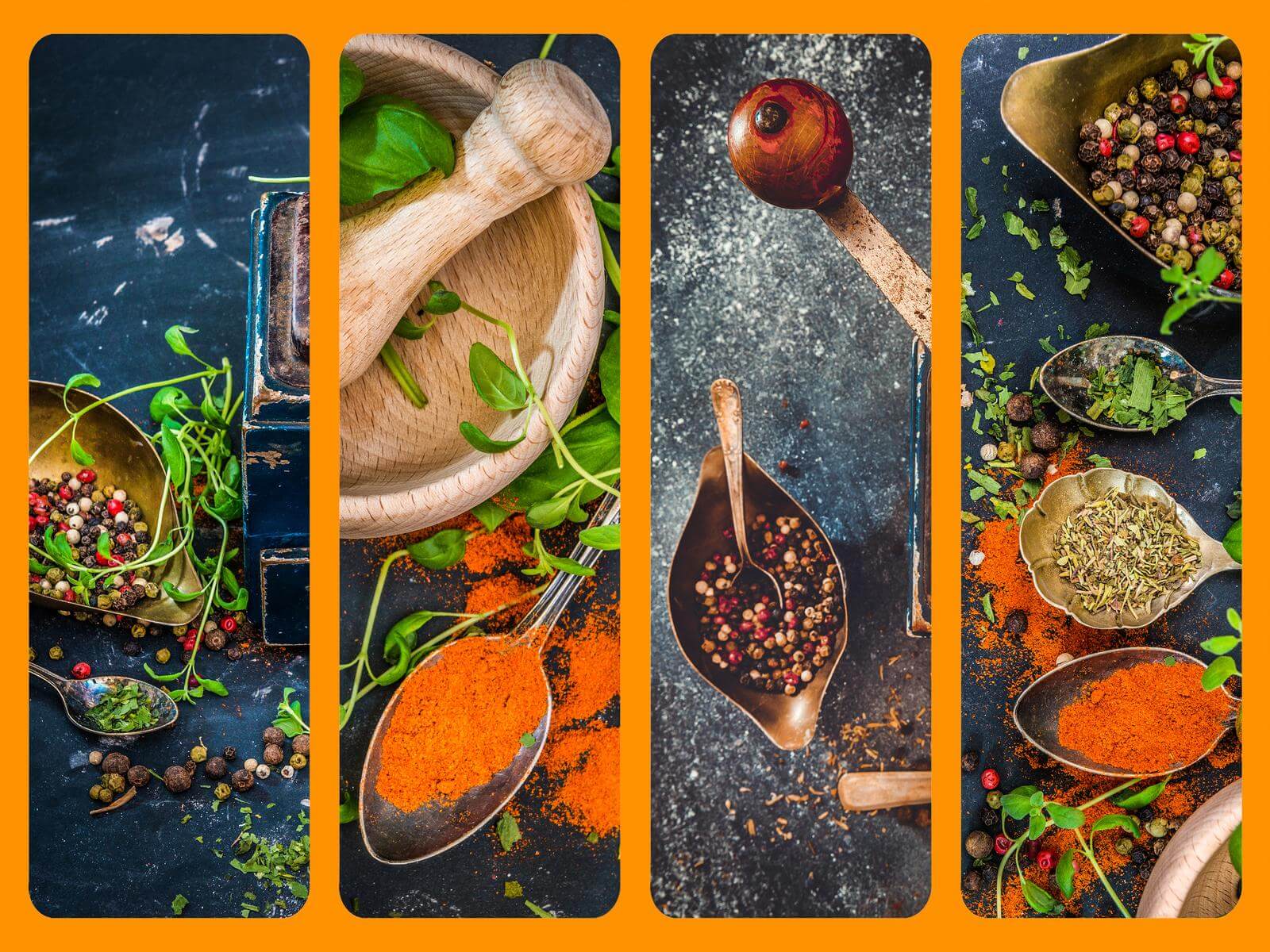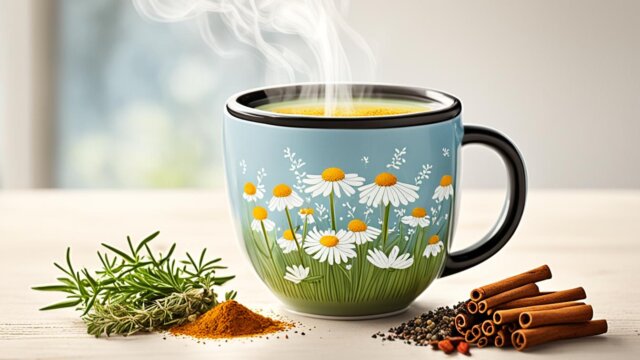FTC disclaimer: This post may contains affiliate links and we will be compensated if you click on a link and make a purchase.
Many herbs and spices can combat inflammation and are safe because they are all-natural. These anti-inflammatory herbs and spices also benefit inflammation sufferers because they have healing properties to end swelling, redness, and pain associated with this condition.
Unlike many synthetic medications, these herbs and spices have limited side effects while providing much of the same relief as their pharmaceutical counterparts.
There are 20 anti-inflammatory herbs with the most therapeutic properties to stop these issues.
Anti-inflammatory Herbs and Spices
1. Turmeric

Turmeric is an age-old spice with a long history of medicinal use. Modern science is beginning to unlock the secrets of its healing power, and inflammation is one area where this spice appears to be particularly effective.
Turmeric contains a compound called curcumin, which has been shown to have powerful anti-inflammatory effects. In one study, curcumin was more effective at reducing inflammation than hydrocortisone, a common anti-inflammatory medication.
It is most notably used to treat arthritis, both osteoarthritis, and rheumatoid arthritis. Research and extensive medical studies of inflammation sufferers compare turmeric to common drugs such as hydrocortisone and Motrin without fear of dependence or other side effects.
Many diagnosed with arthritis reported improvement in stiffness and swelling of joints after using this herb for only 14 days. It has also proven effective in treatment after operation to combat swelling associated with this type of surgery.
While more research is needed to understand how exactly curcumin works, there is no doubt that this spice can profoundly impact inflammation. For those looking for a natural way to reduce inflammation, turmeric may be worth a try.
2. Ginger
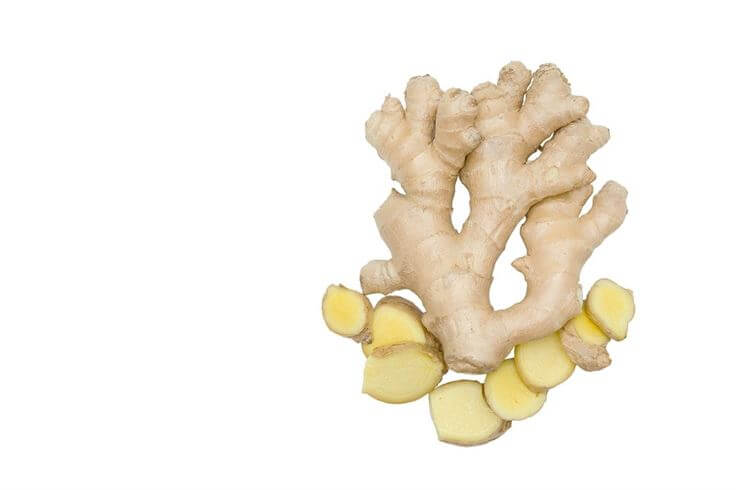
Ginger has a long tradition of being used as an anti-inflammatory. It is one of the most commonly used herbs for this purpose. Ginger contains many compounds that have anti-inflammatory effects.
These include gingerols, zingerone, and shogaols. Ginger is effective in reducing inflammation in many studies.
Ginger is also commonly used in cooking, but this herb has medicinal benefits. Two recent studies have shown ginger is fabulous for treating pain and inflammation, with doctors claiming it can stop the body from triggering inflammation.
It also helps treat the pain associated with colds, menstrual cramping, and even the flu.
3. Licorice
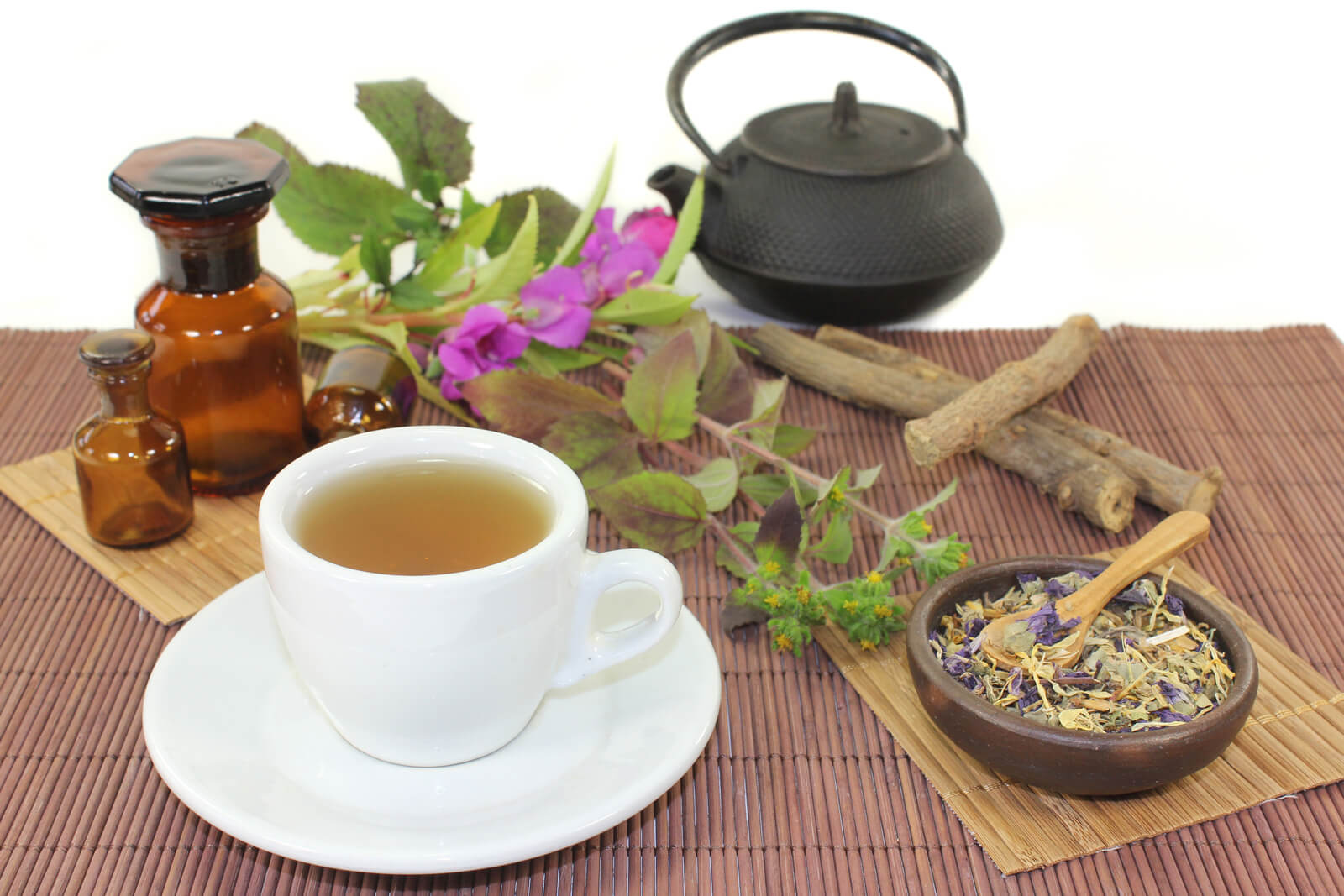
Licorice is a plant used to treat various ailments for centuries. The main active ingredient in licorice is glycyrrhizin, which has anti-inflammatory properties. Studies have shown that licorice can help to reduce inflammation in the digestive tract, skin, and lungs.
Licorice is an herb with a high flavonoid content, a powerful blocker, and a fighter against inflammation within the body.
This herb is also a great treatment for depression, fungus, viruses, and ulcers. A 2008 pharmacological study proves Licorice blocking powers for inflammation because it activates NF-kappa B and STAT-3 pathways, which help stop inflammation.
Licorice is available in many forms, such as teas, capsules, and extracts. If you’re interested in trying licorice for its anti-inflammatory benefits, speak to your doctor first to ensure it’s safe.
4. Basil
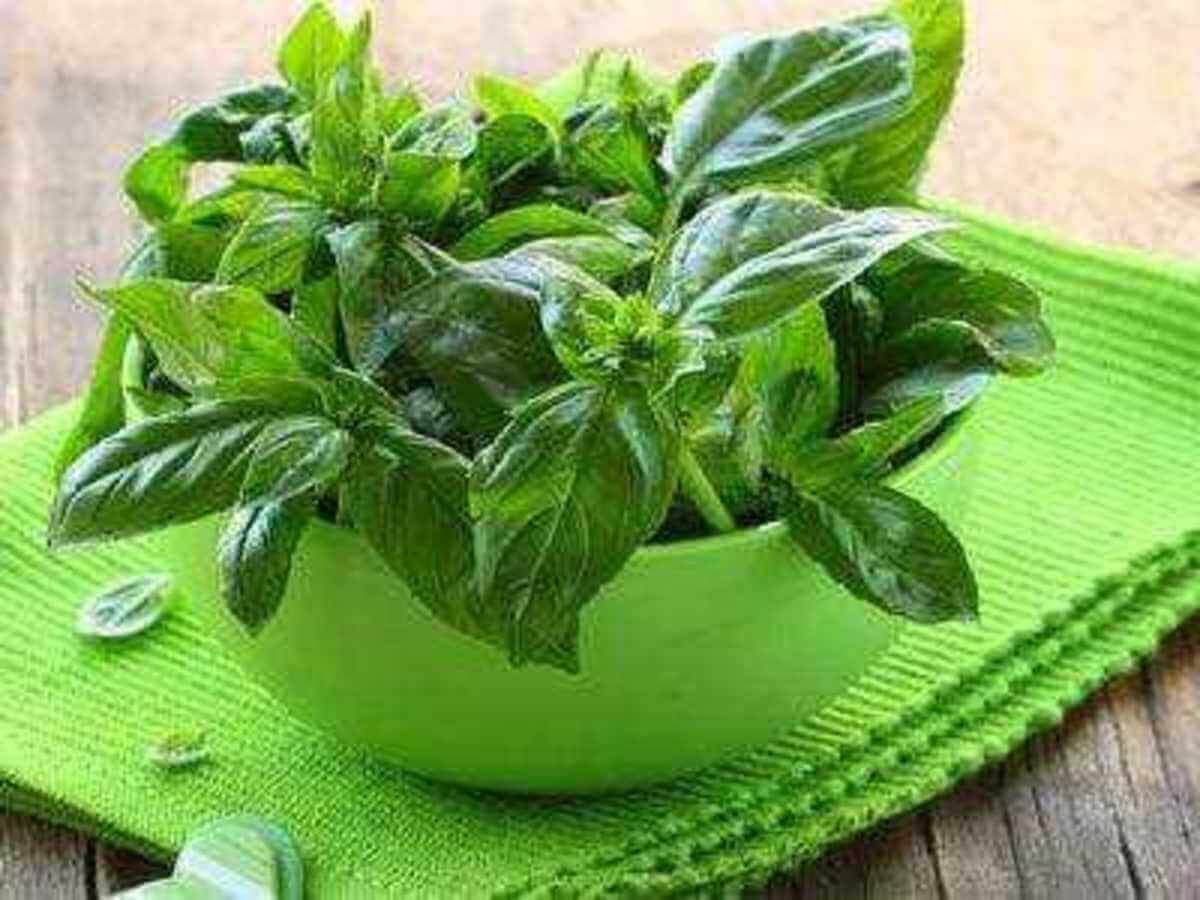
Basil, or Ocimum basilicum, is an annual herb in the mint family. It is native to India and Sri Lanka but is now grown in many other tropical and subtropical regions.
The leaves are fresh or dried to flavor soups, sauces, and other dishes. Basil is also a popular dietary supplement due to its purported health benefits.
Basil is a common herb used in sauces as well as salads. Still, many people do not realize its other useful purposes, such as blocking inflammation, as Tylenol and Ibuprofen do.
Scientific research also shows that it stops the formation of bacteria, which cause inflammation.
There is some evidence that basil may help reduce inflammation. One study found that basil oil was able to inhibit the production of inflammatory compounds in human cells.
Additionally, animal studies have shown that basil extract can help reduce inflammation and tissue damage caused by inflammatory arthritis.
While more research is needed to confirm these effects, basil appears to be a promising natural remedy for inflammation.
5. Boswellia
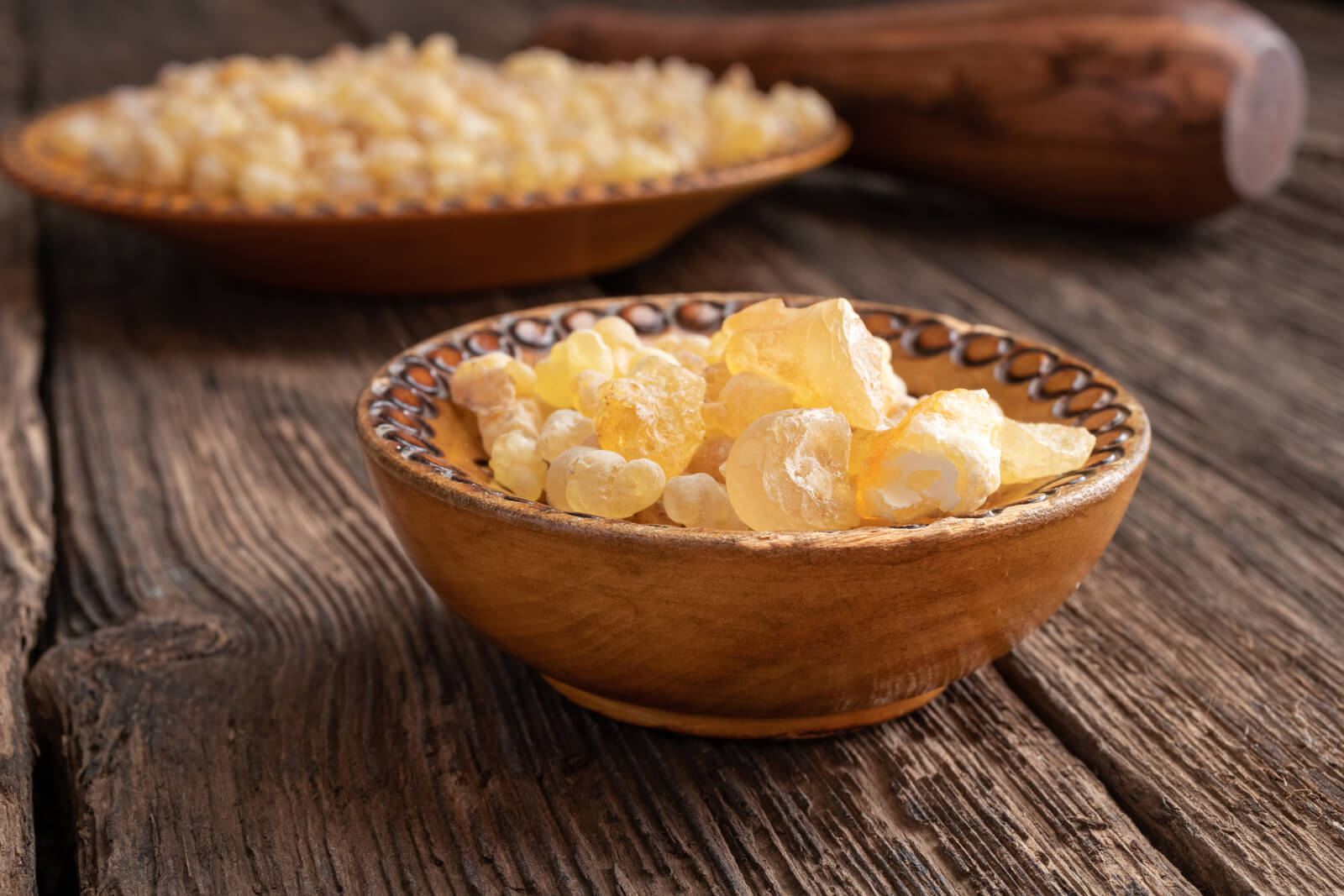
Boswellia is an herbal extract that has been traditionally used to treat inflammation. Boswellia is thought to work by inhibiting the production of inflammatory chemicals in the body.
This herb comes from a tree of the same name and is used to treat joint swelling and pain.
A few small studies have found that Boswellia may effectively treat arthritis and other inflammatory conditions.
Scientifically, this herb is a remedy for chronic inflammation because it destroys a cytokine and reduces the growth of cells that cause inflammation.
Boswellia is generally well tolerated, but some people may experience gastrointestinal side effects such as heartburn, indigestion, and diarrhea. Boswellia should be used cautiously in people with bleeding disorders or those taking blood-thinning medications.
6. Rosemary
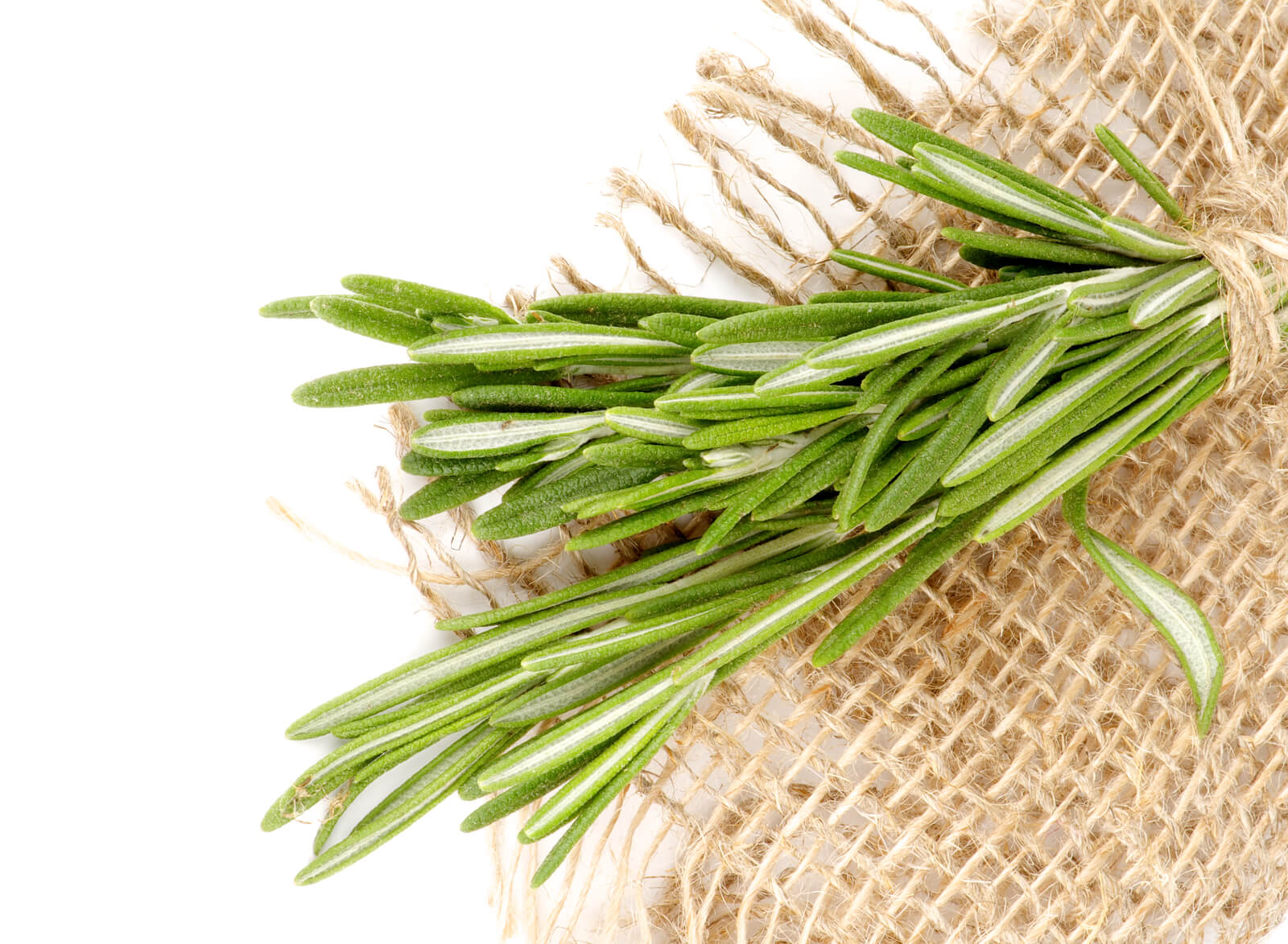
Rosemary is an herb that has a long history of use for various health conditions. Rosemary is rich in antioxidants and anti-inflammatory compounds, making it a popular natural remedy for inflammation.
Not only does this herb add flavor, but it is also full of flavonoids, which reduce inflammation naturally.
There are many ways to use rosemary for inflammation. The most common is to add it to food or take it as a supplement. Rosemary can also be applied topically as an essential oil or ointment.
Research shows Rosemary has properties that protect cells and membranes from becoming inflamed. It is also a helpful tonic and diaphoretic, making a person sweat.
Some possible benefits of rosemary include reducing pain, swelling, and inflammation-related stiffness.
7. Garlic
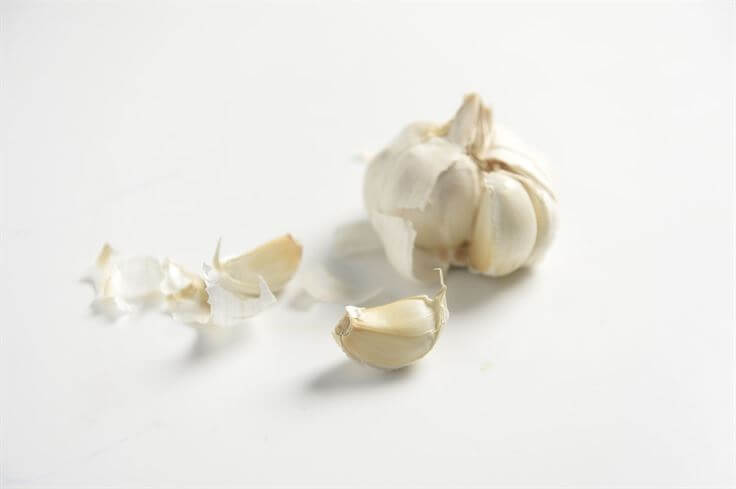
If you’re struggling with inflammation, you might want to give garlic a try. This common kitchen ingredient has been used to treat inflammatory conditions for centuries.
Everyone knows that garlic is a very common herb used in cooking, but many do not know about its other healing properties related to inflammation.
Much like Boswellia, it changes cytokines, which are often responsible for inflammation.
Recent studies have shown that garlic can help reduce inflammation throughout the body. One study found that raw garlic was more effective than cooked garlic in reducing inflammation.
If you’re considering adding garlic to your diet, you must speak with your doctor first. Some people may be allergic to garlic or have other medical conditions that make it unsafe.
At a 2012 AHA (American Heart Association) conference, garlic extract studies showed a large decrease in inflammation when participants took garlic extract supplements. It also helps with sinuses, colds, and even hypertension.
8. Cayenne
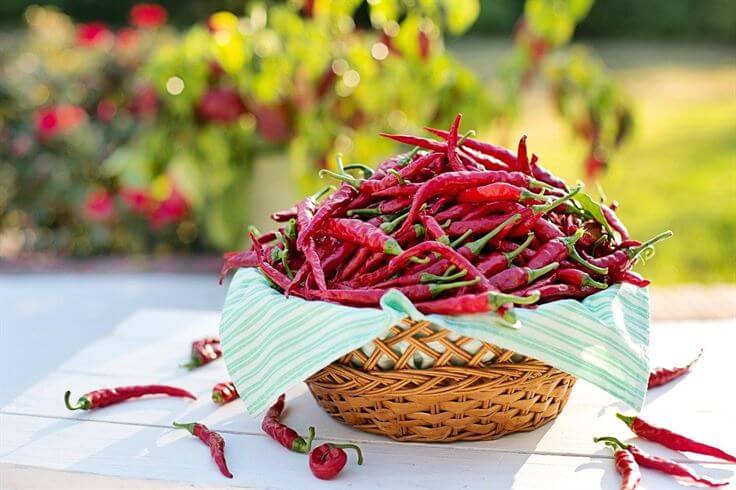
Cayenne pepper is one of the most powerful natural remedies for fighting inflammation.
This spice is full of spicy flavor as well as healing agents. It is quite potent in vitamins B and C, as well as in calcium and potassium.
Capsaicin, the compound that gives cayenne its heat, has reduced pain and inflammation. Studies have found that capsaicin can be as effective as some over-the-counter anti-inflammatory drugs.
Moreover, capsaicin in this spice decreases inflammation and is used to treat arthritis. Memorial Sloan-Kettering Cancer Center also proved its anti-inflammatory properties to aid in treating many types of cancer.
Cayenne is also a potent antioxidant. Antioxidants help protect cells from damage caused by free radicals. This can be especially helpful in reducing inflammation related to chronic conditions like arthritis.
Cayenne pepper is a great option if you’re looking for a natural way to reduce inflammation. Just be sure to start slowly with this potent remedy. A little goes a long way when it comes to cayenne!
9. Cinnamon

Cinnamon is a spice that has been used for centuries in traditional medicine. It is made from the bark of the cinnamon tree and has a sweet, pungent flavor.
Cinnamon is known for its anti-inflammatory properties and has been used to treat various conditions, including arthritis, menstrual cramps, and diarrhea. A recent study found that cinnamon may also effectively treat inflammatory bowel disease (IBD).
The study, which researchers at the University of Arizona conducted, looked at the effects of cinnamon on mice with IBD. The mice were given either a placebo or cinnamon extract for four weeks.
The mice receiving cinnamon extract showed significantly reduced inflammation in their intestines compared to those receiving the placebo.
Research shows that Cinnamon fights bacteria and decreases inflammation. It is also very safe with few side effects.
10. Parsley
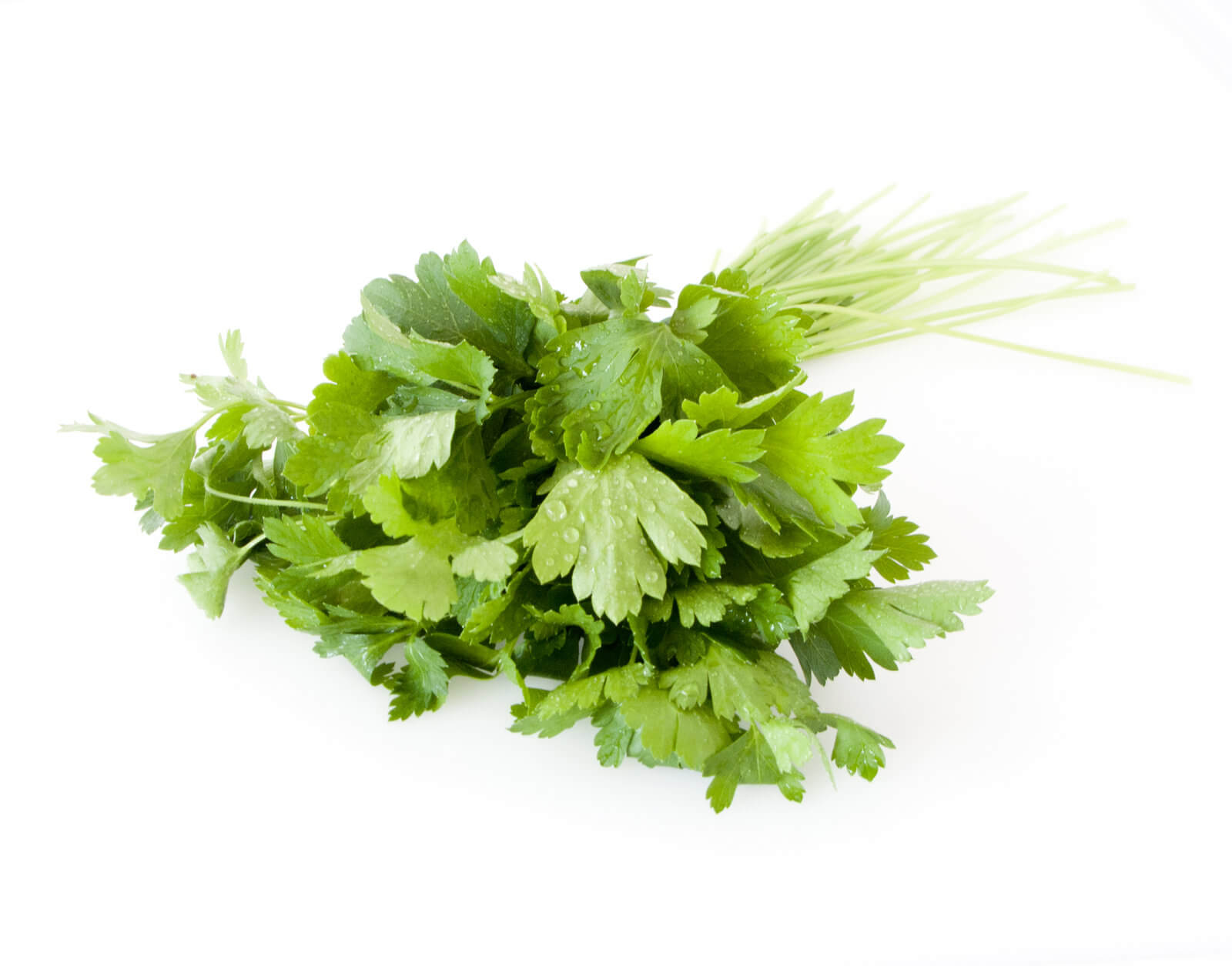
Parsley is an anti-inflammatory herb that has a wide range of health benefits. It can treat conditions like arthritis, asthma, and even cancer.
Parsley contains antioxidants and anti-inflammatory compounds that can help reduce inflammation. Moreover, Parsley is full of healthy nutrients such as Vitamins A, B, C, and K.
Moreover, Parsley can be consumed fresh or dried and is also available in supplement form. Adding parsley to your diet may help reduce inflammation and improve overall health.
Furthermore, Parsley also boosts immunity and helps with digestive problems. Phytotherapy Research done in 2008 proved that both asparagus and parsley can effectively decrease inflammation due to their ability to prevent cellular damage and destroy the free radicals responsible for inflammation. The flavonoids in parsley also help with this issue.
11. Guggul
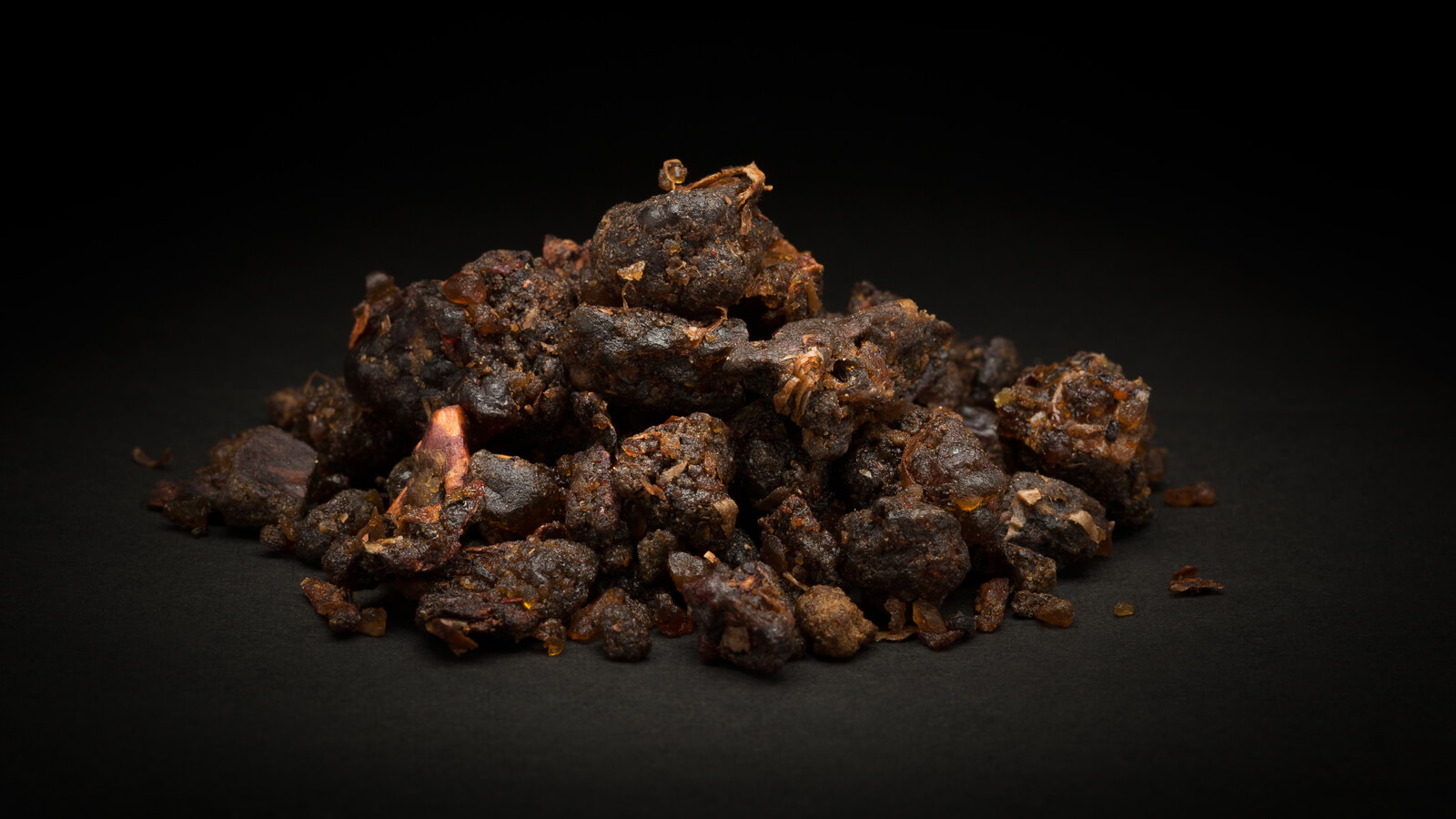
You may want to try guggul if you’re looking for an herbal remedy to help with inflammation.
Guggul is a resin from the Mukul myrrh tree, and it’s been used in Ayurvedic medicine for centuries. Studies have shown that guggul can help reduce inflammation and pain, making it a helpful treatment for arthritis and fibromyalgia.
Ibuprofen works because it prevents inflammation, much like other NSAID medications. Guggul works in the same way without so many side effects. Scientific research has proven its healing benefits in patients with knee osteoporosis after using the herb for a short period of time.
Guggul is available in supplements, powders, and ointments. Talking to your doctor before taking guggul or any other supplement is important, as medications can have potential side effects and interactions. When taken as directed, however, guggul is generally safe and effective for most people.
12. Neem
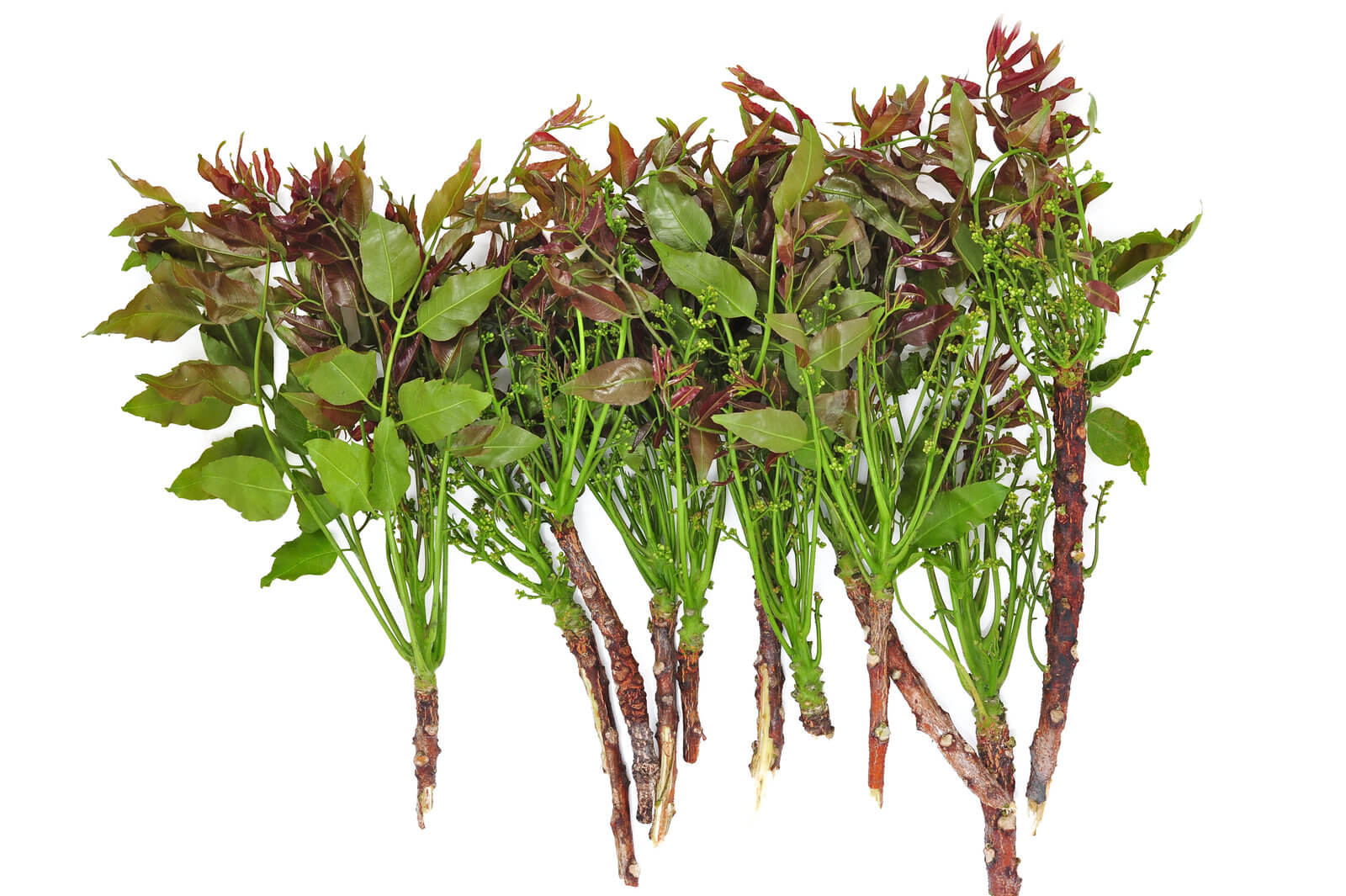
Neem is an age-old remedy for inflammation. The bark, leaves, and seeds of the neem tree have been used traditionally to treat a wide variety of inflammatory conditions.
This herb, which is native to India, comes from a tree. Its benefits are not limited to anti-inflammatory properties because it also fights viruses, fungi, and bacteria in the body.
Recent studies have shown that neem may be helpful in the treatment of arthritis, psoriasis, and other inflammatory conditions. Neem has anti-inflammatory, antioxidant, and immune-modulating properties. It also helps to reduce pain and swelling.
Neem is a safe and effective natural remedy for inflammation. It can be taken orally or applied topically to the affected area.
13. Aloe Vera
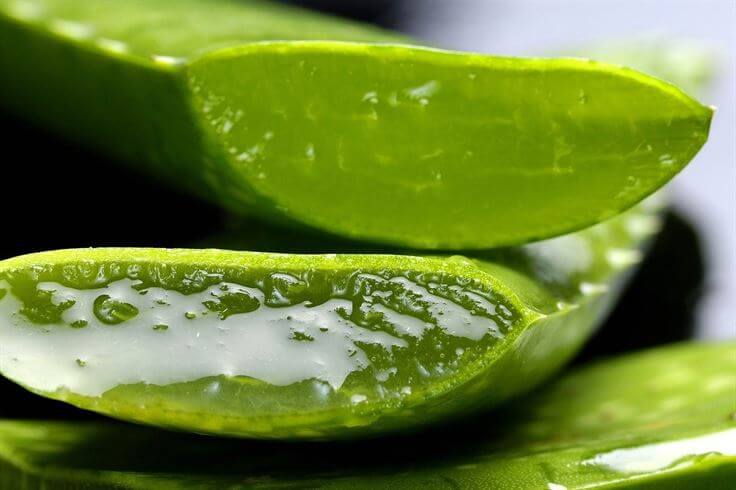
Aloe Vera is a succulent plant used for centuries to treat various ailments. Most people know this is great for burns and cuts, but it also fights inflammation within the body because of its cooling properties when it encounters the digestive tract.
The active ingredient in aloe vera, aloin, has anti-inflammatory properties that make it effective in treating conditions like arthritis and joint pain.
Research shows that it is more powerful than hydrocortisone cream (at a 1% mixture) and is great at handling inflammatory skin conditions.
Aloe vera can be taken orally as capsules or gel or applied topically as a cream or ointment. When used topically, aloe vera can help to soothe inflamed skin and reduce swelling. If you are considering using aloe vera for inflammation, talk to your doctor to ensure it is the right treatment.
14. Saw Palmetto
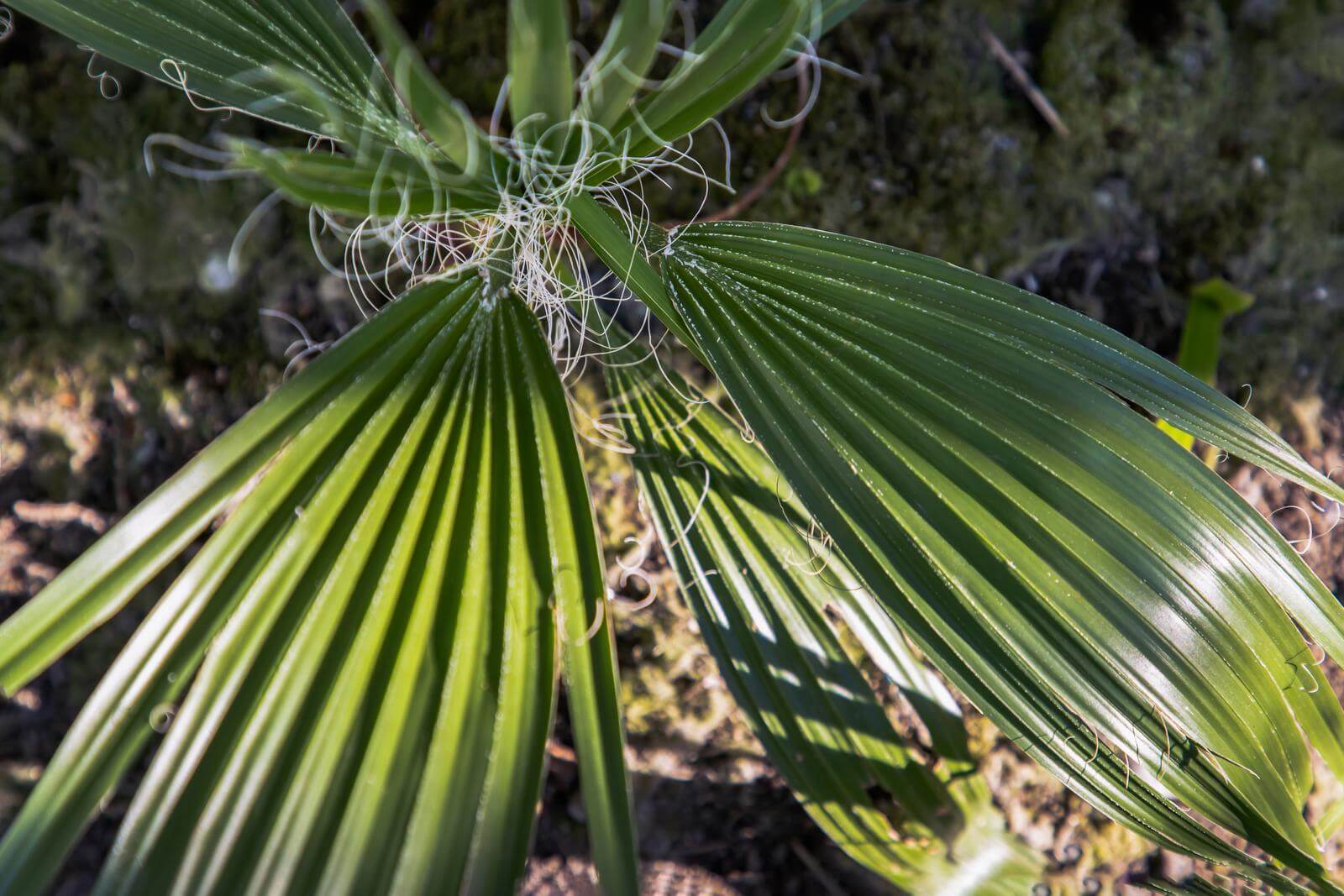
Saw palmetto is a plant used for centuries to treat various medical conditions. The active ingredient in saw palmetto is a fatty acid known as beta-sitosterol. This substance has anti-inflammatory properties and is effective in treating conditions like allergies, asthma, and arthritis.
This plant is native to the South of the United States. It helps with all types of inflammation, most notably urinary tract and testicular inflammations. Studies over the past 50 years prove its ability to help men with these types of inflammation.
Saw palmetto supplements are widely available and are typically taken in the form of capsules or tablets. If you are considering taking saw palmetto for inflammation, talk to your doctor first to ensure it is safe for you.
15. Ashwagandha
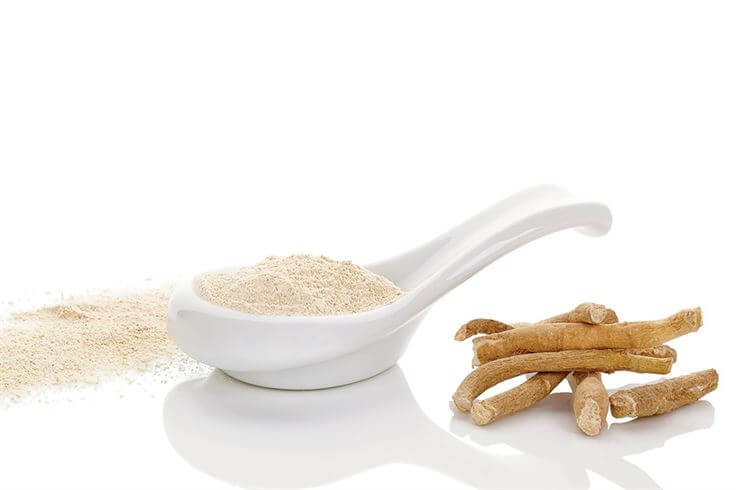
Ashwagandha, an Ayurvedic medicinal herb, is effective in reducing inflammation. This herb is commonly used in the Middle East, Spain, and Africa for its healing properties.
Scientific research proves it to be an effective anti-inflammatory, comparable to hydrocortisone cream. It also helps with stress and sex drive issues and boosts the immune system.
In a study published in the Journal of Ethnopharmacology, ashwagandha was found to decrease the levels of pro-inflammatory cytokines and increase the levels of anti-inflammatory cytokines. This suggests that ashwagandha may help to reduce inflammation by modulating the immune system.
In another study, ashwagandha was found to inhibit the production of nitric oxide, a molecule that plays a role in inflammation. This suggests that ashwagandha may help to reduce inflammation by inhibiting the production of inflammatory molecules.
Overall, these studies suggest that ashwagandha may be effective in reducing inflammation.
16. Arnica

Arnica is an herb used for centuries to treat various ailments. Today, it is most commonly used as an anti-inflammatory agent. Arnica contains a compound called Arnidiol, which is believed to be responsible for its anti-inflammatory properties.
Arnica treats various inflammatory conditions, such as arthritis, bursitis, and tendinitis. It has also effectively reduced inflammation associated with injuries and surgery.
While arnica is generally safe and well-tolerated, it should be used cautiously in people with bleeding disorders or who are taking blood-thinning medications. Arnica should not be used on broken skin or open wounds.
Arnica is found in northern North America, Europe, and eastern Asia. Unlike many other herbs and spices, it must be allied topically instead of consumed orally.
It is commonly used for bruises, sprains, and inflammation. It works by helping the immune system and preventing the formation of bad cells.
17. Gotu Kola
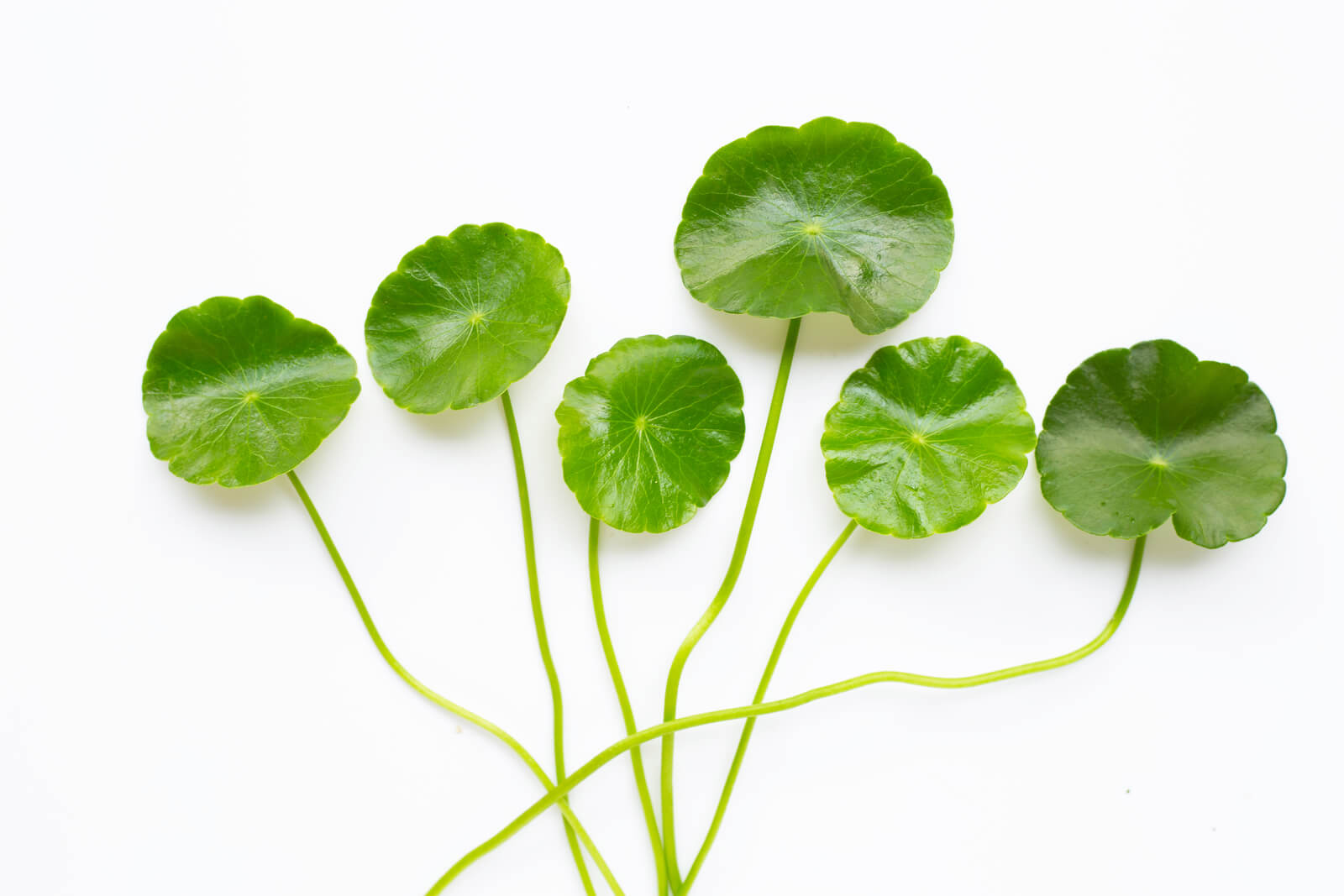
If you’re looking for a natural way to reduce inflammation, you may want to try Gotu kola. This herb has been used in traditional Chinese and Ayurvedic medicine for centuries to treat various conditions.
Normally used in the Eastern Hemisphere, Gotu kola herb helps wounds, Eczema, and even treats lupus. Research performed in 1995 shows that the Gotu kola destroys tumors by attacking the cells within it. It is very effective in treating inflammation of the skin.
Recent studies have shown that Gotu kola can help reduce inflammation by inhibiting the production of inflammatory cytokines. It can also help increase blood circulation and protect against cell damage.
To use Gotu kola for inflammation, take it in capsule form or make tea from the dried leaves. You can also apply a Gotu kola cream or ointment to the affected area.
18. Slippery Elm

Slippery elm is a tree that has long been used for its medicinal properties. The tree’s inner bark is used to make a tea that is taken internally to treat various ailments.
The inner bark of the slippery elm tree is dried and powdered and can be found in capsules, powders, and teas. Slippery elm is most commonly used to treat gastrointestinal issues such as diarrhea, constipation, and intestinal inflammation.
Slippery elm has anti-inflammatory properties and has been traditionally used to treat inflammatory conditions such as Crohn’s disease, ulcerative colitis, and irritable bowel syndrome.
It is also effective in healing wounds, boils, burns, insect bites, and other skin inflammation.
It is taken orally, and studies show Slippery elm reduces inflammation in the digestive system. It is often used to treat Crohn’s disease and other ulcer colitis.
19. Nutmeg
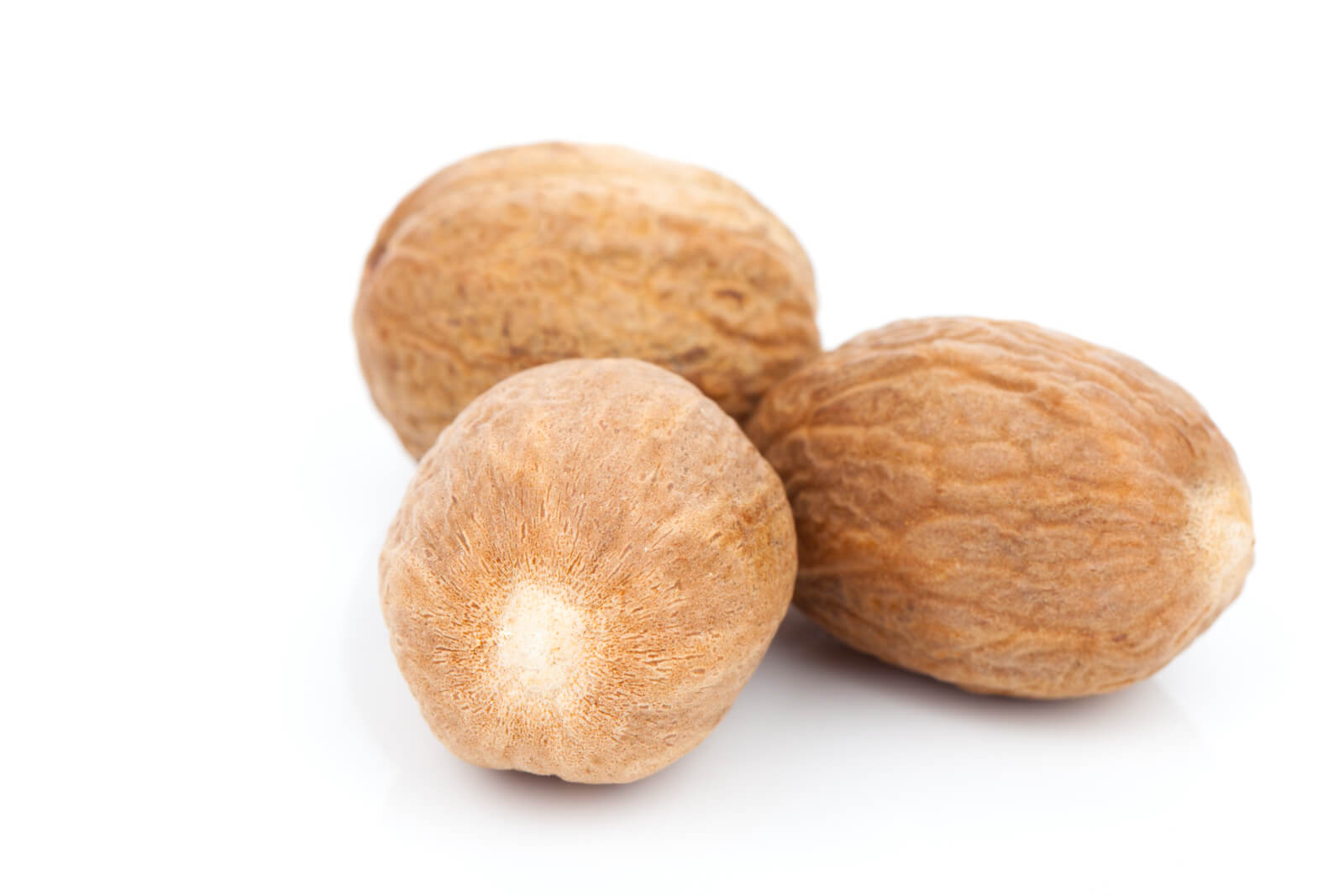
More and more people are looking for natural ways to treat their inflammation and pain. Nutmeg may be a spice you typically think of using in sweet dishes, but it has powerful anti-inflammatory properties that make it a great addition to your medicine cabinet.
Nutmeg contains compounds like eugenol and isoeugenol, which have been shown to reduce inflammation. One study showed that nutmeg was able to reduce inflammation in rats with arthritis significantly.
It destroys disease-causing pathogens and has also been proven to help control pain. It can also be applied topically to aching joints and muscles.
If you’re looking for a natural way to reduce inflammation, give nutmeg a try.
20. Black Pepper
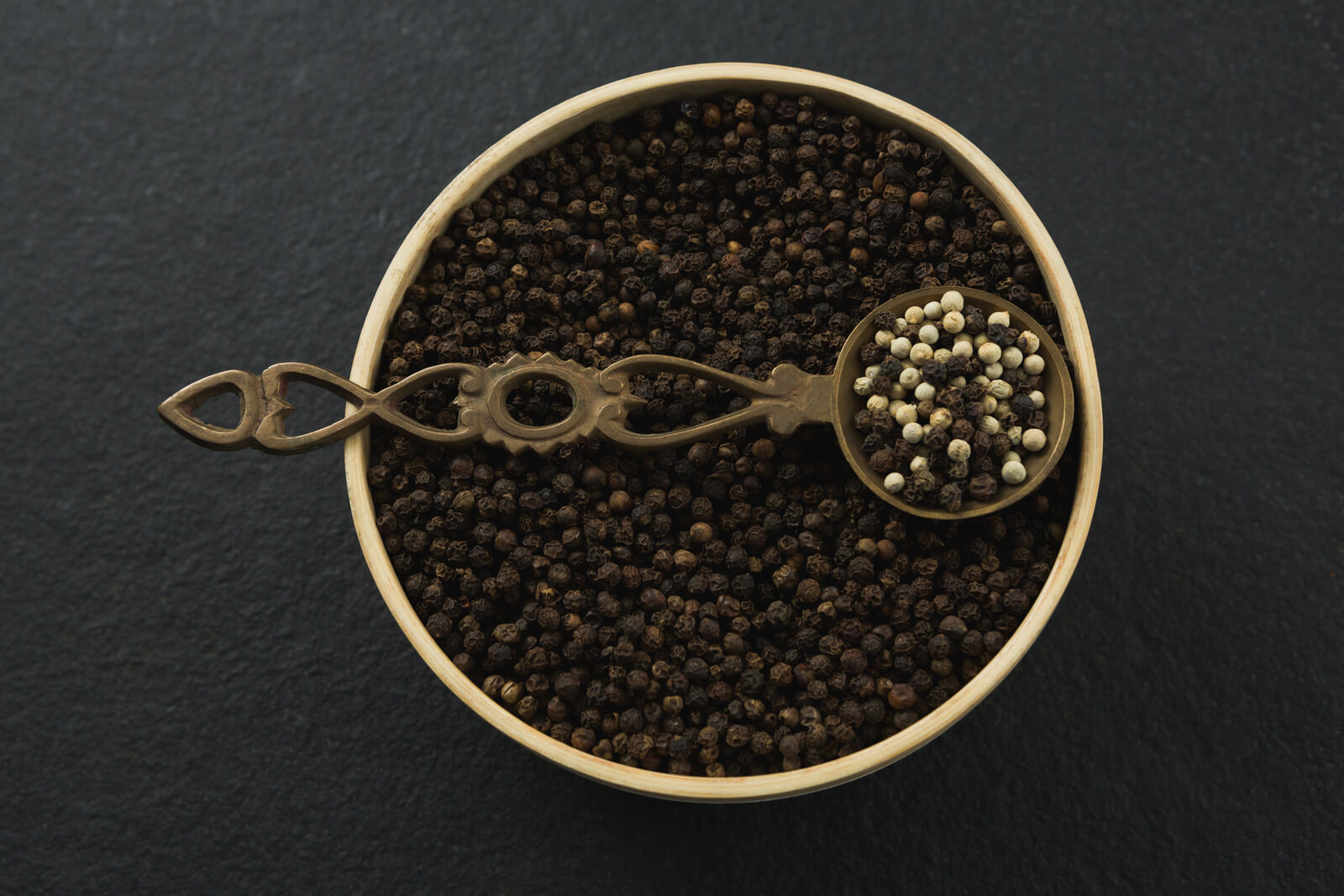
Black Pepper is an effective spice to use for inflammation. Most people have this spice in their kitchen but are unaware of its health benefits. Studies are investigating its ability to fight inflammation by blocking compounds NF-kappaB, COX-1, and COX-2, which are enzymes.
It can help reduce swelling and pain in the joints and muscles. Black Pepper is also a natural antiseptic and can be used to cleanse wounds.
To use black pepper for inflammation, add a teaspoon of black pepper to a glass of warm water and drink it. You can also add black pepper to your food when cooking or sprinkle it on top of finished dishes.
Sick and tired of taking over-the-counter (OTC) NSAID (nonsteroidal anti-inflammatory drugs), which are causing more harm than good to your body?
Want to try a more natural approach to managing your symptoms and fighting inflammation healthily?
Take a look at some of the more Natural Anti-Inflammatory Supplements on the market today and get your health back on track!!
As with all changes to your diet and/or medications or when adding a supplement, always consult your Doctor or Physician for the best advice and results.
The Bottom Line
Try incorporating these 20 anti-inflammatory herbs and spices into your diet to help boost your immunity.
Some easy ways to do so are to add them to your cooking, make tea, or take supplements. By taking these steps, you can help improve your overall health and well-being.
